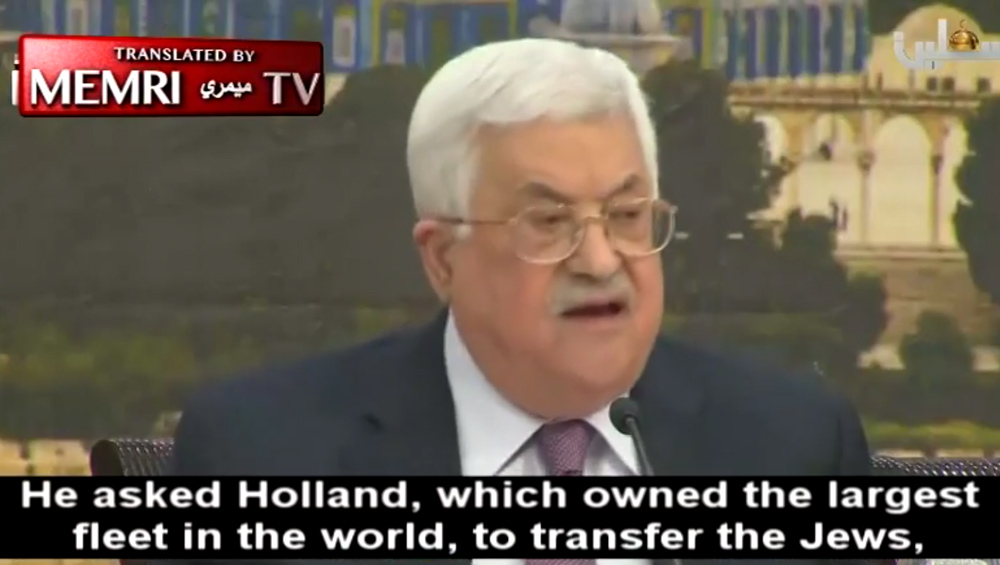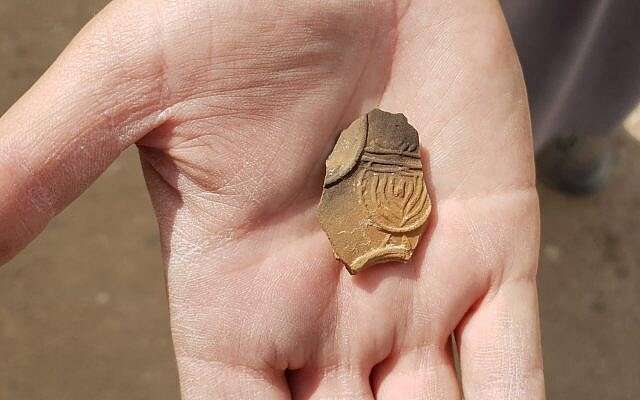by Bassam Tawil
The Trump administration will soon discover what every child in the Arab and Islamic world already knows
- The anti-Israel campaign in the Arab and Islamic world sees peace with Israel -- and not failed leadership, bad economic policies and corruption -- as the biggest threat to Arabs and Muslims. Recognizing Israel's right to exist is also seen by many Arabs and Muslims as a humiliation to their values, their culture, their political power and their economic traditions. They seem concerned that Arabs and Muslims might wake up one morning and start demanding freedom of expression and free and democratic elections like the ones held every few years in Israel.
- The anti-peace camp seems to want its people to continue living in misery and under dictatorships, so that it is easier to recruit people to jihad against Israel and the West. Also, if people are lifted from poverty and misery and begin to enjoy the fruits of modern civilization, there is a chance that Arabs and Muslims will move away from Islam and even start endorsing the inadmissible values of the West.
- The Trump administration will soon discover what every child in the Arab and Islamic world already knows: that the Israeli-Arab conflict is not about a settlement or a checkpoint or a security fence, but about Israel's very right to exist in the Middle East. The Trump administration will also learn that peace with Israel is seen by many Arabs and Muslims as nothing but an unacceptable threat that must at all costs be stopped.

Palestinian
Authority President Mahmoud Abbas, who is often described by Western
media and officials as "moderate" and "pragmatic," last year quoted
Egyptian intellectual Abdel-Wahab El-Messiri, saying Israel "constitutes
a colonialist enterprise that has nothing to do with Judaism," and
adding that Europeans wanted "to transfer the Jews" to the Middle East
because "they wanted this region to become an advanced post to protect
the interests and the convoys coming from Europe to the East." (Image
source: MEMRI video screenshot)
|
Peace with Israel is purportedly a form of surrender and submission that will harm the dignity of Arabs and Muslims.
This is the theme of a massive campaign being waged by Palestinians and other Arabs in preparation for the announcement of the US administration's plan for peace in the Middle East, also known as the "deal of the century." The plan, according to US officials, is expected to be announced sometime after the general elections in Israel, slated for April 9.
The latest campaign is designed to thwart the "deal of the century" and terrorize Arabs and Muslims who may wish to accept the US administration's peace plan.
As part of an effort to raise awareness to the dangers of the "deal of the century," an increasing number of Palestinians and Arabs are now trying to explain to their people why peace and normalization of ties with Israel is totally unacceptable.
The latest effort came in the form of an online campaign called "The International Anti-Normalization Campaign."
The organizers of the campaign say they are worried that some Arab states and leaders may cooperate with the "deal of the century." They are concerned because they see that some Arab states and leaders are already engaged in various forms of normalization with Israel.
The campaign clearly aims to send a warning not only to ordinary Arabs and Muslims, but also to their leaders, about the "dangerous repercussions" of making peace with Israel.
According to the organizers of the anti-peace campaign, "normalization [with Israel] is the miserable outcome of a culture of surrender and submission" -- and concessions and peace are only shameful and degrading.
For them, the words peace and compromise (with Israel) seem associated with extremely negative connotations such as retreat, defeat and surrender.
Recognizing Israel's right to exist is also seen by many Arabs and Muslims as a humiliation to their values, their culture, their political power and their economic traditions. They have been educated to see Israel as an alien body and a "colonial project" planted in the Middle East by Western powers. They therefore cannot accept the presence of Jews -- in what they regard as their own sovereign state -- on lands they believe belong solely to Muslims.
Even Palestinian Authority President Mahmoud Abbas, who is often described by Western media outlets and officials as a "moderate" and "pragmatic" Arab leader, shares the view that Israel is nothing but a "colonial project." In a speech before PLO delegates in Ramallah last year, Abbas quoted Egyptian intellectual Abdel-Wahab El-Messiri, saying:
"The functional nature of Israel means that it was evoked by colonialism in order to fulfill a specific function, and thus it constitutes a colonialist enterprise that has nothing to do with Judaism."Abbas added:
"[Oliver Cromwell] came up with the idea of transferring the Jews from Europe to the Middle East... because they wanted this region to become an advanced post to protect the interests and the convoys coming from Europe to the East... He asked Holland, which owned the largest fleet in the world, to transfer the Jews, but the project was unsuccessful. This was in 1653."In the past year, Abbas has also repeatedly announced his rejection of the unseen "deal of the century." He has referred to the plan as a "conspiracy" and the "slap of the century." How then can he turn to his people and suddenly accept it -- or any deal that might recognize Israel's right to exist?
"Normalization [with Israel] is tantamount to defeat," explained Mohammed al-Adloni, secretary-general of an anti-Israel group, "The International Coalition for Supporting Jerusalem and Palestine."
He went on to warn that making peace or normalizing ties with Israel would constitute a threat to the "consciousness" of Arabs and Muslims. Making peace with Israel, al-Adloni said, would be like "a complete occupation of the consciousness [of Arabs and Muslims]."
Al-Adloni and other anti-Israel activists in the Arab and Islamic countries appear worried that, should they make peace with the "Zionist entity," their people might be exposed to democratic values and freedom of expression. They seem concerned that Arabs and Muslims wake up one morning and start demanding free and democratic elections like the ones held every few years in Israel.
The anti-peace camp in the Arab and Islamic world appears not to want its people exposed to advanced Israeli technology, including medical care. This camp seems to want its people to continue living in misery and under dictatorships, so that it is easier to recruit people to jihad against Israel and the West. Also, if people are lifted from poverty and misery, and their living conditions are improved so they begin to enjoy the fruits of modern civilization, there is a chance that Arabs and Muslims will move away from Islam and even start endorsing the inadmissible values of the West.
This camp, extremists, seem not to care about lowering the high rate of unemployment among Arabs and Muslims, improving the living conditions of its people or offering young Arabs and Muslims hope for a better future. They seem instead to want their people to continue living in misery so that their anger, again, can be directed more easily towards Israel and the West.
The anti-Israel campaign in the Arab and Islamic world sees peace with Israel -- and not failed leadership, bad economic policies and corruption -- as the biggest threat to Arabs and Muslims. The message that the anti-peace activists are sending to their people says: "Peace with Israel is the worst thing that could happen to us Arabs and Muslims because these Jews will invade our minds and our culture."
Yasser Qadoura, who represents a Lebanon-based group called "The Popular Committee for Palestinians in the Diaspora," says that his organization is now making a big effort to educate Arabs and Muslims about the "dangers" of peace and normalization with Israel. He said that his followers and he are planning to publish a "list of shame" containing the names of Arabs and Muslims who are caught promoting peace and normalization or trying to make peace with Israel.
Anyone whose name appears on the list will immediately be denounced by Arabs and Muslims as a "traitor." Treason, in many of the Arab and Islamic countries, is a charge punishable by death. The "list of shame" would therefore be seen by Arabs and Muslims as a license to kill anyone who dared even to talk about peace with Israel.
Last month, a large group of Arab and Islamic activists who met in the Lebanese capital of Beirut ruled that "all forms of normalization with the Zionist entity are an act of treachery." According to the group, an Arab or Muslim who even engages in sports, cultural and artistic activities with the "Zionist entity" would be considered a "traitor." In the eyes of the Arab and Islamic activists, including Islamic religious leaders, anyone who plays soccer or attends a cultural event with a Jew would be condemned as a "traitor."
If and when US President Donald J. Trump's administration finally publishes its plan, it will discover that many Arabs and Muslims have already launched a campaign of intimidation to stop their leaders from making peace with Israel. If an Arab or Muslim child is prohibited from playing soccer with a Jew, how can the Trump administration expect the Arabs and Muslims to recognize Israel's right to exist?
The Trump administration will soon discover what every child in the Arab and Islamic world already knows: that the Israeli-Arab conflict is not about a settlement or a checkpoint or a security fence, but about Israel's very right to exist in the Middle East. The Trump administration will also learn that peace with Israel is seen by many Arabs and Muslims as nothing but an unacceptable threat that must at all costs be stopped.
Bassam Tawil is a Muslim Arab based in the Middle East.
Source: https://www.gatestoneinstitute.org/14020/opposition-peace-israel
Follow Middle East and Terrorism on Twitter




